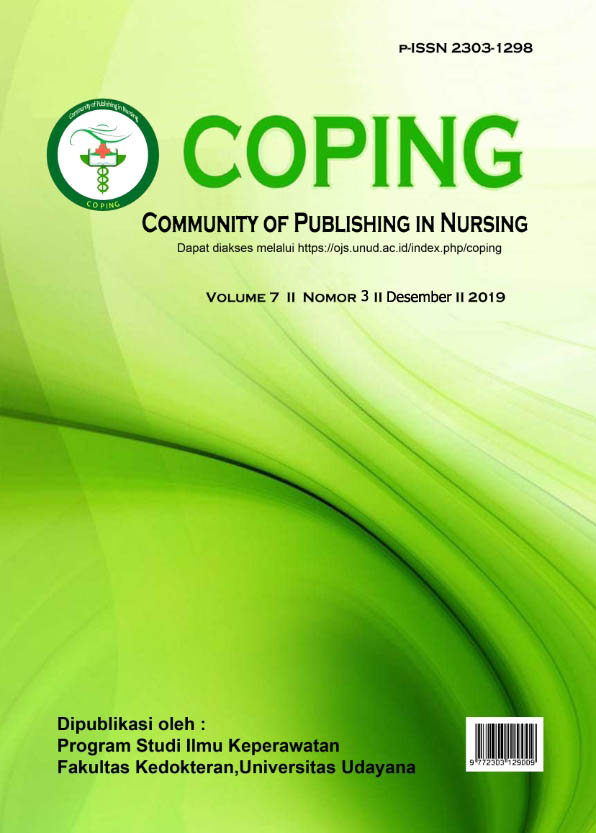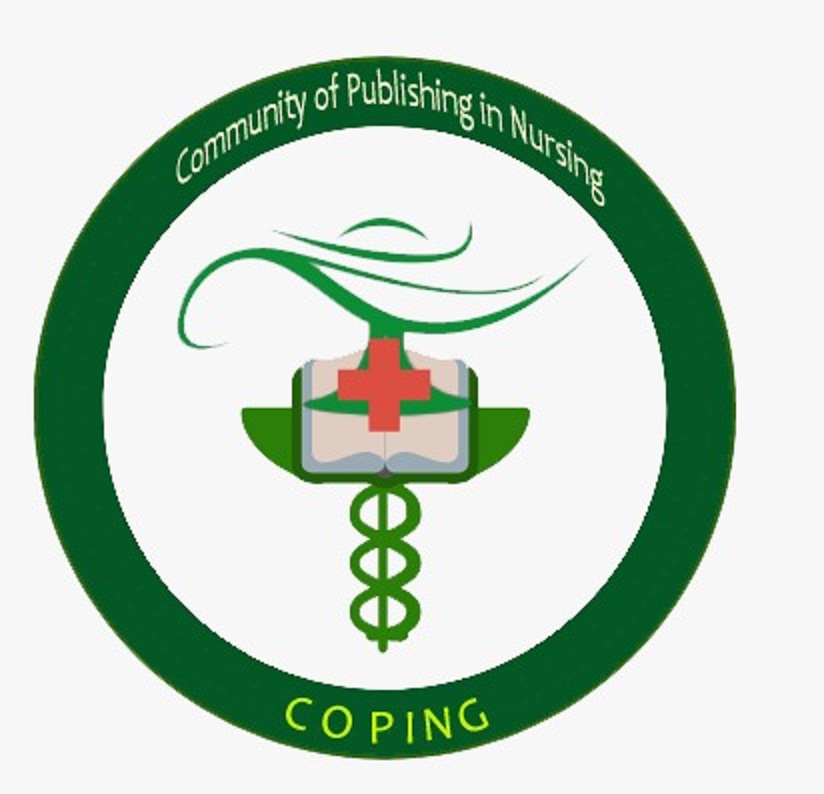Pengaruh Emotional Freedom Technique terhadap Quality of Life Pasien Stroke
Abstract
Kejadian stroke menurut WHO menyatakan bahwa pada tahun 2015 sebesar 15 juta orang di dunia terkena stroke setiap tahunnya. Stroke juga akan mengakibatkan gangguan kontrol pada pergerakan, fatique, gangguan persepsi sensori nyeri, gangguan emosi, gangguan memori, dan menurunnya quality of life pada pasien tersebut. Tujuan penelitian ini untuk menganalisis efektifitas pemberian EFT (Emotional Freedom Technique) terhadap quality of life pasien stroke di RSUD Tugurejo Semarang. Desain penelitian ini adalah pre experimental design dengan one group pre test and post test yang menggunakan pendekatan kuantitatif. Jumlah sampel dalam penelitian ini 62 responden dengan teknik pengambilan sampel consecutive sampling.Kriteria inklusi yaitu kesadaran composmentis, mental baik, ketergantungan sedang. Kriteria eksklusi yaitu stroke hemoragik dan kritis. Pada penelitian ini menggunakan uji wilcoxon signed rank test karena data berdistribusi tidak normal. Hasil penelitian ini menunjukkan terdapat perbedaan yang signifikan antara Quality of Life (QoL) Pasien Stroke Iskemik sebelum dan sesudah diberikan terapi Emotional Freedom Technique (EFT) dengan nilai p value 0.001 (p value<0.05). Perbedaan ditunjukkan dengan nilai mean rank yang naik dari 0.00 menjadi 29.50 dengan nilai Z hitung – 7,616 yang berarti data bervariasi tinggi secara klinik dan statistik.
Kata kunci: emotional freedom technique, stroke iskemik, quality of life
ABSTRACT
Stroke according to World Health Organization states that in 2015 as many as 15 million people worldwide suffer a stroke every year. Stroke will also result in impaired control of movement, fatigue, impaired sensory perception of pain, emotional disturbances, memory disturbances and decrease quality of life in these patients. Factors that affect quality of life are gender, age, education status, marital status, employment status, income status, ethnicity, disability, psychological and support family. The purpose of this study was to analyze the effectiveness of giving emotional freedom technique to improve quality of life of stroke patients at Tugurejo Hospital Semarang. The design of this study was pre experimental design with one group pre test and post test using a quantitative approach. The number of samples in this study were 62 respondents with consecutive sampling technique. Inclusion criterias in this study were composmentist awareness, good mentality and moderate dependence. Exclusion criterias in this study were hemorrhagic and critical stroke. In this study using the wilcoxon signed rank test because the data is not normal. The results of this study indicate that there are significant differences between the quality of life of ischemic stroke patients before and after emotional freedom technique therapy is given with a p value of 0.001. The difference is indicated by the mean rank value which rose from 0.00 to 29.50. with the calculated Z value 7.616 which mean the data varied clinically and statistically high.
Keywords: emotional freedom technique, ischemic stroke, quality of life







